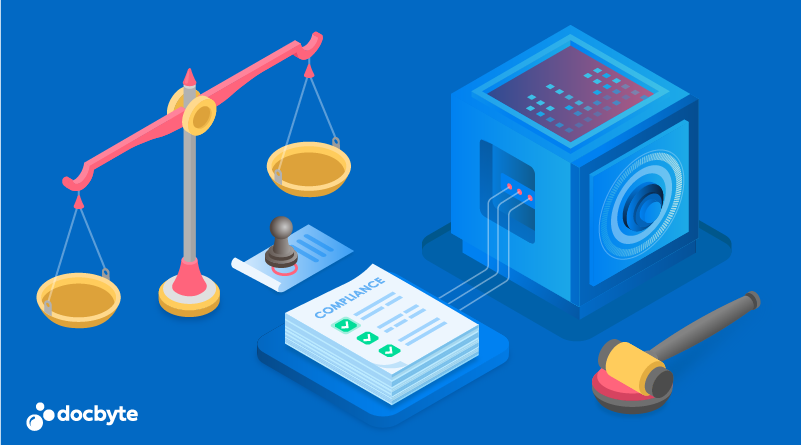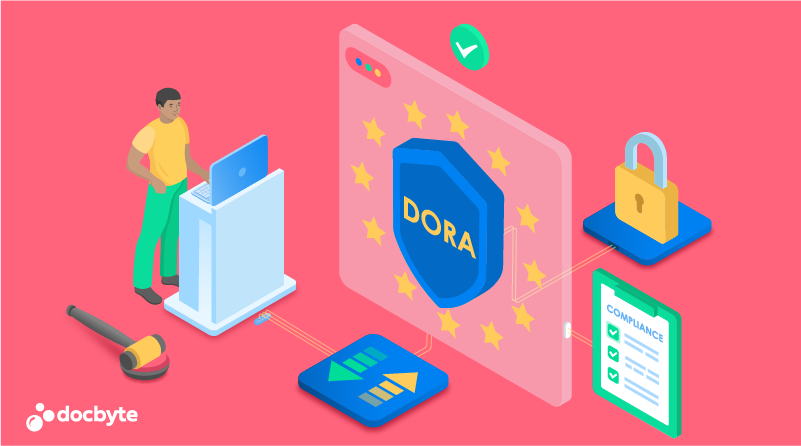Navigating the legalities of data archiving is becoming more complex with regulations such as the GDPR and MiFID II. Data privacy and protection laws have standardized how organizations approach archiving to ensure compliance.
So, the big question is how to stay GDPR and MiFID II compliant when archiving. We’ll provide practical guidelines and a checklist to ensure your archiving practices uphold legal standards. GDPR that impact digital archiving and how your archiving solution should address these challenges.
Understanding the Landscape
Archiving, one of the most fundamental components of data management, stands at odds with the principles of GDPR due to historical inconsistencies in data retention policies and technological limitations. GDPR, with its harsh requirements for data minimization, access controls, and the right to be forgotten, creates a challenge when archiving digitally. Similarly, MiFID II, with its text archiving stipulations, presents specific challenges and opportunities within the financial sector.
Why Traditional Archiving is Often Non-Compliant
Traditionally, email and data archiving solutions were not designed to manage data in accordance with GDPR and MiFID II requirements. They are built for data hoarding, not data minimization.
Their inflexible structures often lack the granular access controls and deletion mechanisms now mandated, making them unable to support the needs of modern privacy and financial regulations.
GDPR Retention Period: How Long Is Too Long?
One of the most challenging aspects of GDPR compliance is determining the appropriate retention period for different data types. The regulation states that data must be kept only as necessary for the purpose in which it was collected. GDPR doesn’t prescribe specific time limits for data retention. Instead, it mandates that data should only be kept for as long as necessary for the purpose for which it was collected.
Navigating the GDPR Compliance in Archiving
Your solution must have several critical features to achieve GDPR compliance in archiving. Robust security measures are necessary to protect personal data from unauthorized access, alteration, disclosure, or destruction.
This requires implementing modern encryption methods, such as multi-factor authentication, secure data transfer protocols, and access controls. These measures protect data and fulfil the accountability principle under GDPR by demonstrating that your organization takes data protection seriously.
Moreover, encryption and pseudonymization help secure data by making it unidentifiable without additional information kept separately. By doing so, businesses can reduce the overall risk associated with data processing.
Data Minimization and Retention
Automatic retention policies and granular access controls are central when managing GDPR-compliant data. They allow you to set the duration of data retention and restrict access to personal data within the archive to those with a legitimate need based on the principle of least privilege.
The above must be maintained in a comprehensive Record of Processing Activities (ROPA). This is a requirement of the GDPR and serves as an essential tool for accountability and assessment. ROPA documents must contain detailed information about all processing activities and be made available to supervisory authorities upon request.
To ensure ROPA compliance:
- Log all processing activities, regardless of scale
- Regularly update ROPA to reflect changes in data processing practices
- Ensure ROPA is easily accessible for audits and inspections
Your archiving system should be a skilled navigator for the individuals seeking their data. It should enable simple search and retrieval of archives and export data in a format easily handed from one system to another, meeting the navigational requirements in GDPR Articles 15 and 20.
Right to Delete Data
One significant area of vulnerability for many organisations is email archiving. To comply with GDPR, email archiving solutions should be able to promptly provide users with access to their data and the ability to delete personal data securely.
Your archiving system must provide a secure means of deleting data according to your retention period. It should be able to delete data beyond recovery while keeping a record of deletions (as ROPA defines) that acts as your compliance ship through potential audits or claims under the right to be forgotten.
Digital Fortification
To protect data against the storms of unauthorised access and accidental loss, your archiving solution should offer robust encryption for data in transit and at rest; this includes regular backups that ensure data integrity and protection against loss, intrusion detection and prevention systems to warn of approaching security threats.
To fully integrate security into your business, you should consider implementing the following:
- Involve data protection experts
- Integrate necessary safeguards into operational processes
- Regularly test and evaluate systems for privacy vulnerabilities
- Educate staff on privacy principles
GDPR Compliance Auditing
As mentioned, your archiving system must be able to maintain detailed records of all data processing activities — an audit trail that effectively serves as the logbook of your compliance journey.
Conducting a thorough data audit is the critical initial step towards compliance. An audit involves identifying all personal data within your business, understanding where it resides, how it’s being used, and who has access to it and determining what needs to be archived and what doesn’t. This step serves two crucial purposes.
First, it facilitates transparency within your organisation, ensuring everyone knows the data they handle. Second, it allows businesses to assess how they’re currently handling and protecting data against the stringent requirements of GDPR.
An effective data audit should cover the following:
- Data type and category
- Data flow and access
- Justifications for processing
- Data security measures
- Process for data erasure
Even with the most robust systems, a single human error can expose an organisation to compliance breaches. Your team is your frontline defence in maintaining GDPR and MiFID II compliance. Regular training and awareness programs for employees are therefore critical.
Training your team should involve understanding the regulatory environment and their responsibilities in handling data. It should also include recognising potential breaches and how to report them.
Regular compliance assessments should include periodic reviews of data protection policies and consistent monitoring of your company’s compliance measures to ensure that your team is updated on everything.
Mapping MiFID II: The Financial Frontier
MiFID II adds complexity to the financial sector’s archiving with its specific requirements for text archiving.
MiFID II Text Archiving
MiFID II lays down text archiving as a legal imperative for certain financial communications. This includes recording all telephone conversations and electronic communications relating to transactions within the context of investment services, when the person receives or transmits orders to execute transactions and when the person deals with his account. These records must be kept for at least five years or seven upon the competent authority’s request.
Compliance with MiFID II
To meet MiFID II’s text archiving demands, your archiving system must be capable of capturing, indexing, and storing relevant communications data. It should apply similar principles of retention, access, deletion, security, and auditing to this aspect of financial record-keeping, as with GDPR.
Striking a balance between compliance and easy accessibility to archived data is crucial. Storage systems should allow for quick and efficient search and retrieval for regulatory inquiries.
Toward the Safe Passage of Dual Compliance
While GDPR and MiFID II each have unique provisions, their emphasis on data governance, security, and accountability means significant overlap in their archiving requirements. For organizations that fall within the purview of both regulations, this means drafting a comprehensive and adaptable archiving strategy that meets both demands. Dual compliance means that your archiving practices are granular enough to meet GDPR mandates and comprehensive enough to satisfy MiFID II’s call for specific text archiving.
Invest in archiving tools and software to manage GDPR and MiFID II compliance, incorporating data encryption, access controls, and secure deletion functions.
A Checklist for Auditing Your Archiving System
As you analyze your existing archiving system or evaluate potential solutions, consider this checklist to ensure you are on the right course for GDPR and MiFID II compliance.
- Is Your Data Classification Clear and Accurate?
- Does your Archiving system consider Data Retention and Minimization?
- Does the system allow for automatic deletion policies and granular access controls?
- Is it easy to control the Right to Access and Data Portability?
- Does the system have robust processes for secure data deletion that can be maintained and audited?
- Are Your Archiving Procedures Transparent and Documented?
- Are strong encryption and intrusion detection measures in place? Are regular backups scheduled and tested?
- Are You Prepared for a Data Subject Request for Access or Erasure?
- Is Your Team Trained to Handle Archiving?
- Do You Have a Regular Audit Schedule for Archiving?
- Can the system generate detailed audit trails and customizable compliance reports?
Remember, the keystone of compliance lies not just in the technological components but also in the processes, policies, and people surrounding your archiving system. Compliant archiving is about the technology in place and the practices governing its use. It requires a holistic approach encompassing legal, operational, and technical components.
Elevation Through Expert Solutions
Achieving and maintaining archiving practices that align with GDPR and MiFID II is not just about following a regulatory checklist; it’s about building a compliant strategy into the very spine of your data management infrastructure.
If the task daunts you, expert compliance and IT professionals can be the lighthouse guiding the role your archiving practices should fulfil in your organization’s overall compliance efforts.
Only by cultivating a culture and practice of awareness, adaptability, and continuous archiving improvement can your organization sail confidently onto the horizon of GDPR and MiFID II compliance.
Safe passage through these regulations is not just a legal necessity but a testament to the trustworthiness and commitment to privacy and security that organizations are increasingly expected to uphold in the digital age.







